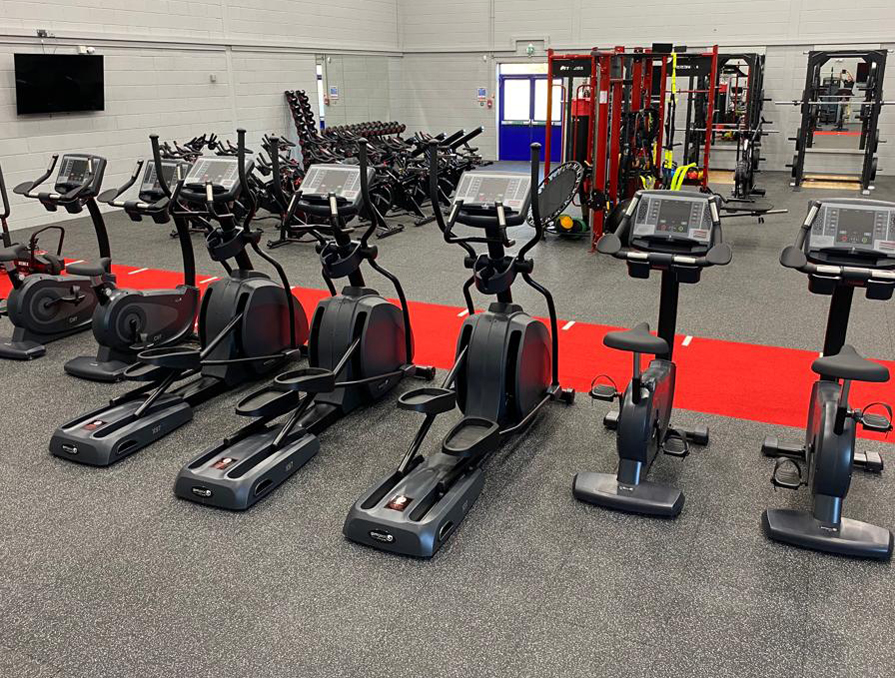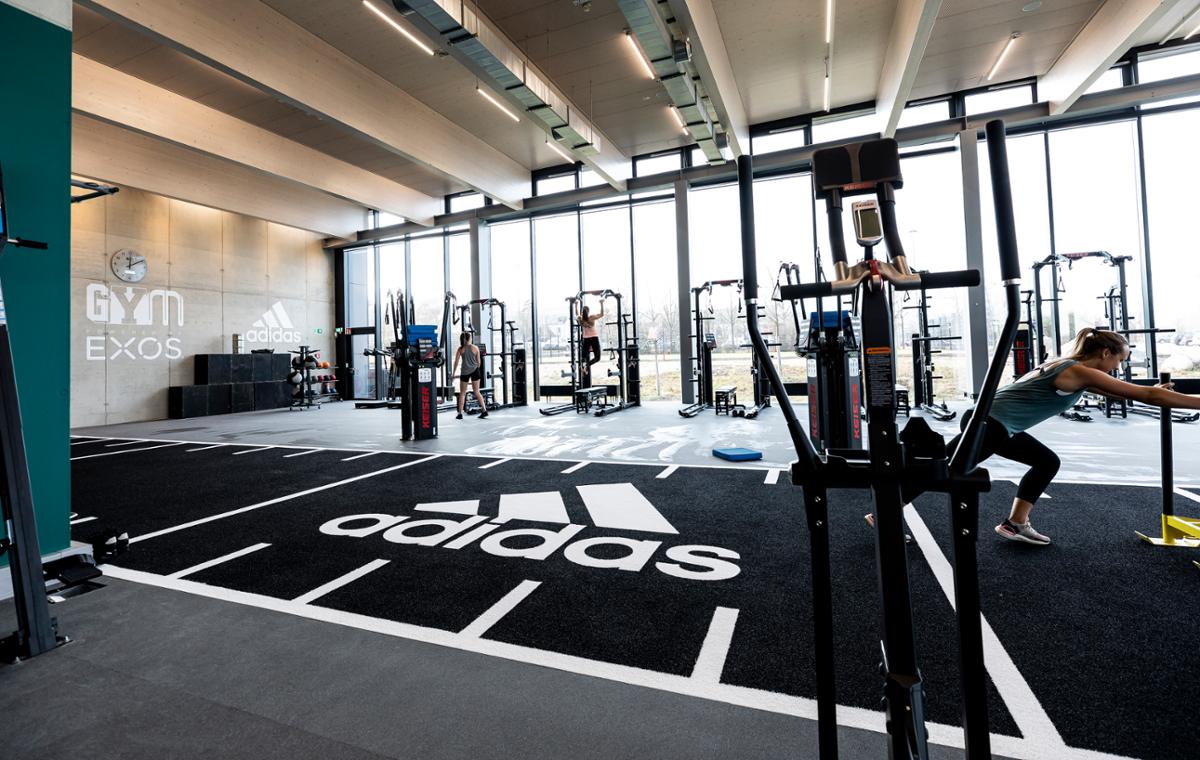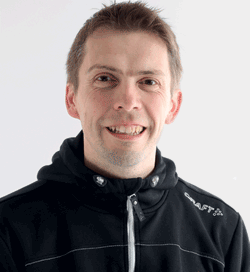latest fit tech news
Egym snaps up Hussle as it moves to dominate the corporate wellness market with its Wellpass product
Net-zero: Eco-floors
How healthy is your flooring for the people who train on it and the planet? Steph Eaves sheds light on sustainability practices
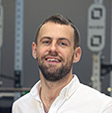
Our work with Adidas at its World of Sport headquarters in Herzogenaurach, Germany required us to comply with LEED Gold certification standards in order to meet its ambitious sustainability targets.
In collaboration with EXOS and Adidas’s project delivery team, BLK BOX supplied and installed over 20,000 sq ft of Performance flooring throughout the campus, ensuring each area was tailored to the unique athletic and design requirements of the space.
Our designs not only facilitated top-tier athletic performance but also embodied the eco-conscious spirit that drives Adidas to achieve its carbon-neutral 2050 vision. Our performance flooring was selected due to the high recycled content and responsible supply chain of materials. The result was a net reduction in carbon emissions.
Our approach is multifaceted. We adopt and draw inspiration from principles akin to the cradle-to-cradle philosophy and strive to innovate within our own operations.
We reduce our carbon footprint through local manufacture, ensuring materials are responsibly and sustainably sourced, while not losing sight of the profound impact that high-quality, long-life products can have on our industry and future generations.
Through careful material selection, we’ve been able to ensure that at least 65 per cent of raw materials and packaging within our Performance flooring range are responsibly sourced post-consumer products.
At BLK BOX HQ, 65 per cent of our electricity is generated from renewables and we’ve invested over £2.5m in the latest machinery to help minimise our environmental impact.
We emphasise the reuse and recycling of materials, with 56 per cent of our steel recycled and a powder coating line that reclaims 94 per cent of overspray. In line with our ‘Built Better’ philosophy, we also ensure our suppliers meet stringent ethical standards as part of our wider sustainability strategy.
Being FloorScore accredited and LEED v4 certified, BLK BOX Performance flooring is a testament to our commitment to maintaining the lowest possible levels of volatile organic compounds, ensuring air quality in any training facility remains safe for users and staff.
Beyond emissions, Performance flooring is produced to recognised ISO standards and embraces full transparency through Environmental Product Declarations (EPDs) and Health Product Declarations (HPDs).
Fusion, our flagship product in the Performance range, is a great sustainable innovation, being made of 98 per cent recycled content, surpassing the industry standard for sustainable flooring without compromising on aesthetics or performance. Its dual-layered design has a vulcanised rubber surface layer that’s fusion-bonded to a shock-absorbing base layer.
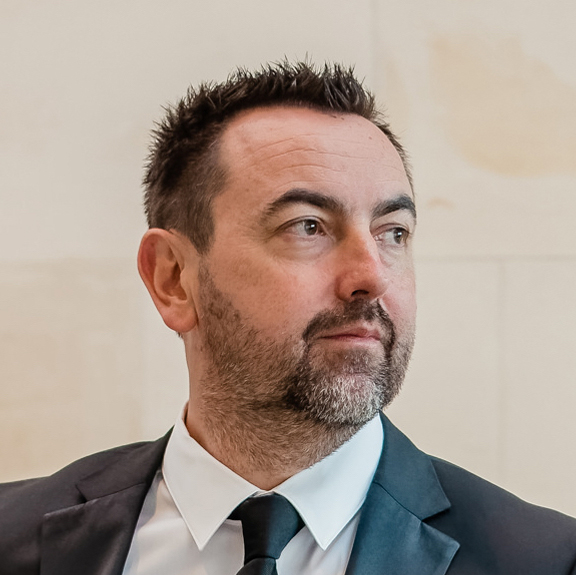
We recently supplied our Sportec Style Tiles for Virgin Active’s extensive refurbishment programme. Sportec is our most sustainable product because it’s made from over 99 per cent recycled material and is so hard wearing that it’s not uncommon to see the products used for over 10 years. It can also be recycled again at the end of its life.
The Product Carbon Footprint (PCF) determines the climate impact of each of our Sportec flooring products. We look at their whole lifecycle, calculating the production of greenhouse gases from the raw materials or purchased parts of the product, up to the point at which it leaves our company.
The calculation is carried out using a software tool certified by a sustainability consultancy called Denkstatt, which complies with the standards ISO 14067 (Product Carbon Footprint) and ISO 14040/44 (Life Cycle Assessment).
Our use of the Product Carbon Footprint demonstrates our commitment to transparency and environmental awareness. It serves both as a benchmark in the development of new products and a guide in defining our corporate strategies, while also offers the potential to identify improvements.
Our products are labelled in our publications and technical documents with the corresponding CO2 data, so customers who have to comply with environmental requirements can see at first glance whether a product meets the criteria.
Our energy management system also helps us use energy resources efficiently and our factory’s energy management system is certified to ISO 50001.
Energy-relevant topics feature in all our processes. With our energy policy as a basis and strategic goals in mind, the programme is developed, implemented, regularly evaluated and constantly optimised.
We manufacture flooring products from secondary material, but also recycle 100 per cent of accumulated material, such as offcuts, start-up waste or older unsold product lines, in order to feed it back into the production process.
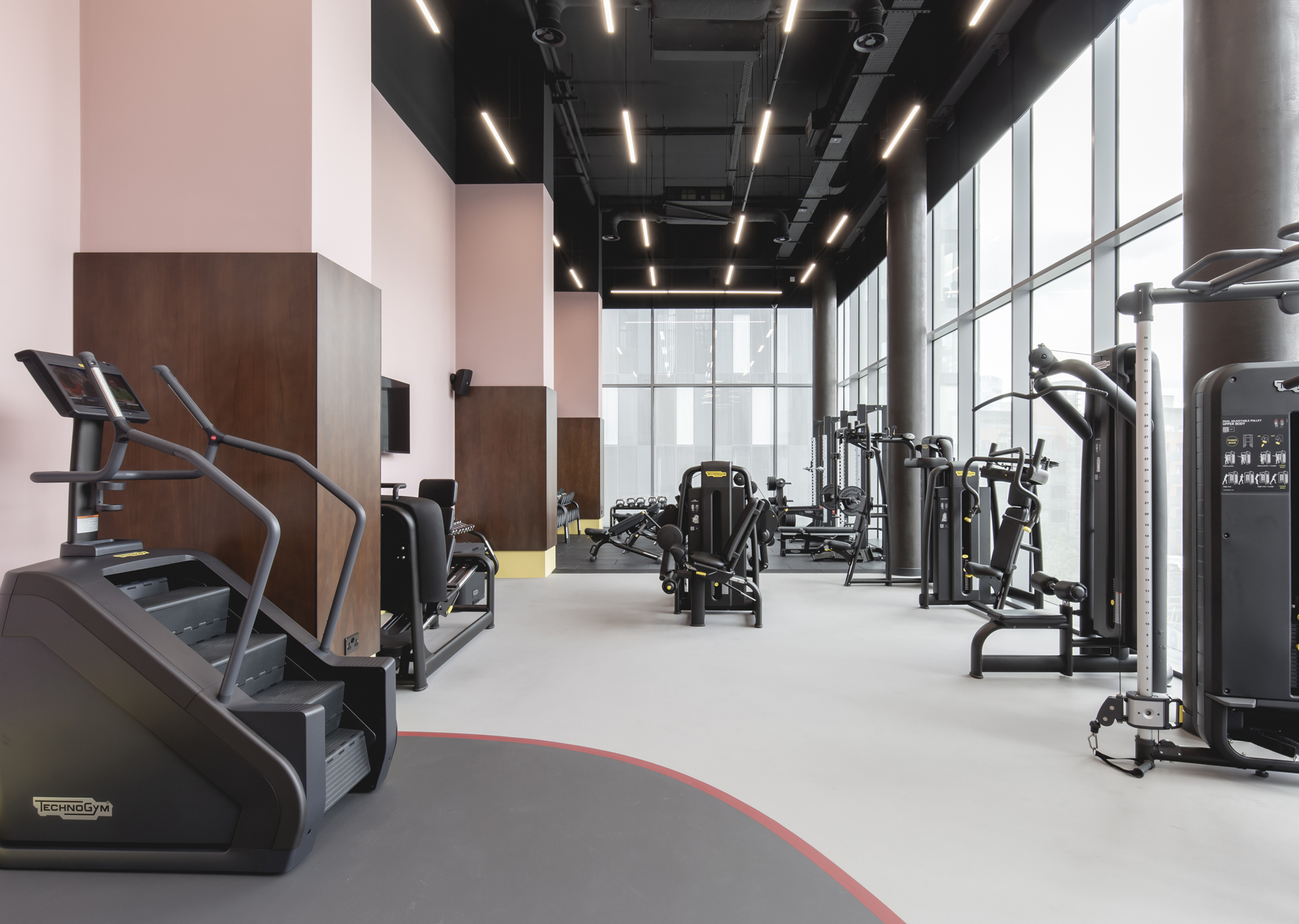
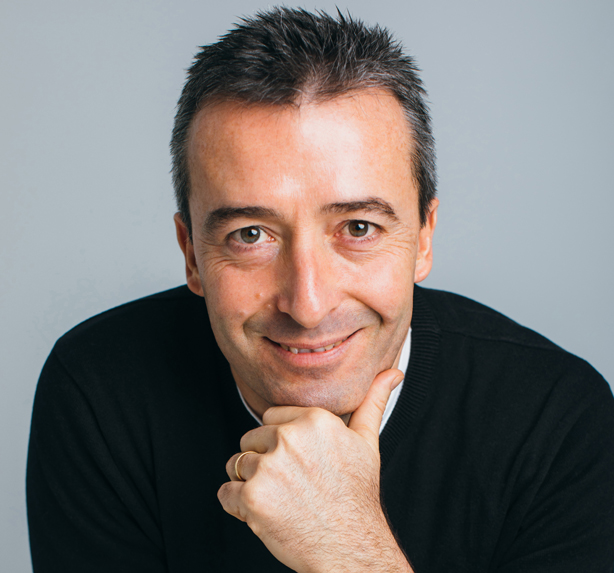
Our commitment is evident through our adherence to ISO 9000 and 14000 standards, especially 14001, ensuring rigorous quality and environmental stewardships.
We’re actively involved in EU projects, particularly in the development of high-performance materials for functional flooring and sports flooring and in doing so, we reaffirm our commitment to a sustainable future that generates a positive global impact and achieves economic and ecological harmony.
Although we’re not currently Cradle to Cradle certified, our company has made substantial progress in the five key areas covered by this certification: material health, product circular economy, clean air and climate protection, water and flooring management and social justice. We’re considering adhering to this certification in the short-term.
Our commitment to sustainability goes beyond compliance and is ingrained in our corporate culture. We work with environmentally certified suppliers and prioritise energy efficiency, using – for example – solar-powered presses and optimising heat retention. In an effort to reduce our carbon footprint, we strategically locate production plants and manufacture exclusively in the European Union, which reduces logistics costs and emissions.
Our workforce’s hybrid working model, with 60 per cent of our time spent telecommuting, not only increases flexibility, but also reduces fuel consumption. These practices underline our dedication to environmentally-friendly business operations.
JD Fitness Centre in Liverpool has adopted innovative sustainability practices by choosing BigJag, our latest acoustic flooring solution.
As well as offering high subfloor impact protection and effective reduction of noise levels in and around the facility, the flooring also stands out for its contribution to the environment.
Traditional insulation alternatives consist of several layers on top of each other, which involves the use of more materials, with a consequent increase in waste and energy consumption.
BigJag, in contrast, has three layers integrated into one piece, reducing environmental impact, with less waste, more efficient transport and lower energy consumption.
The flooring doesn’t release rubber particles with wear and tear, thus improving the environment and health for users. This choice by JD at its flagship Liverpool facility is a statement of intent and a real commitment to improving the environment.
Our main raw material is virgin rubber. Its manufacturing process is far more efficient, sustainable, low-carbon, resource-efficient, and competitive than tyres-recycled rubber. It prevents the loss of recycled rubber granules which is a great concern for the environment as addressed by the EU Norm 2023/2055.
This rubber is 100 per cent recyclable and reusable, as the loose laid products can be easily disassembled, transported and reinstalled or even remanufactured. Our interlocking system avoids adhesives, any other chemical products and installation rejects during the fitting process: operators get an easy, cost-effective installation.
The products last over 10 years – a key sustainability factor; not having to replace your flooring every three to four years prevents further CO2 consumption. Finally, in addition to our ISO 9001 certification, we are certified on ISO 14001: Environmental commitment.
Undoubtedly, our Extreme flooring range, as nothing goes to waste during production: we use the sanding of virgin rubber and the reuse of our waste (mainly the remnants from the cutting process) to crush and reintegrate them into the formula. This way, we close the loop, transforming our leftover material into a flooring solution that maintains performance and aesthetics while significantly contributing to sustainability.
Specifically, the Super Black colour (as chosen by JD in Liverpool) has been created by using exclusively recycled additives to reduce costs and environmental impact.
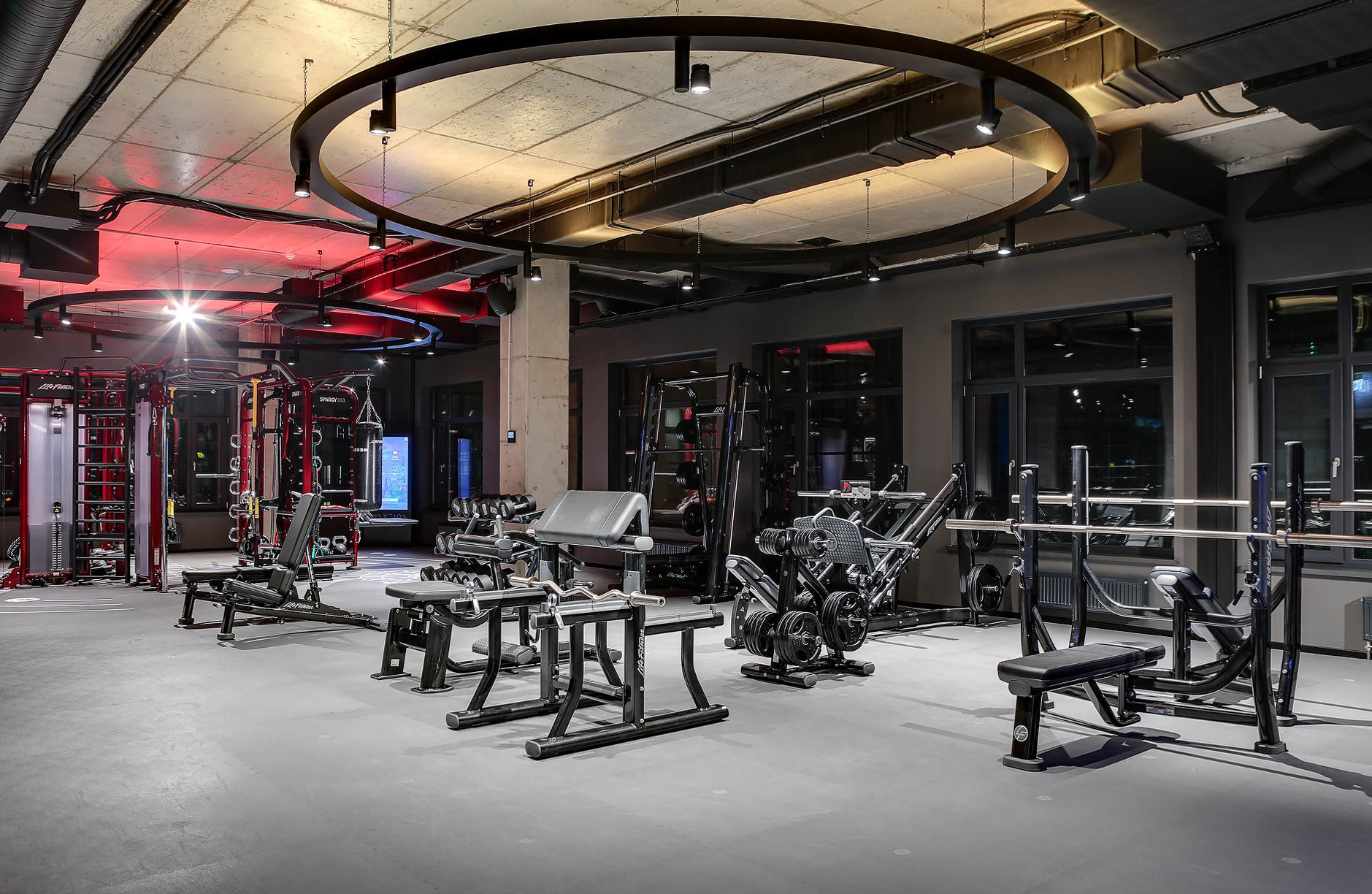
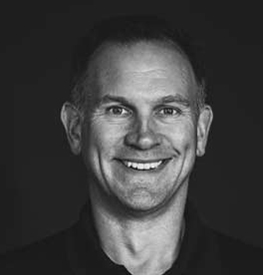
From waste management and travel to our supply chain and deliveries, we constantly look at how we can reduce our impact on the planet.
In our supply chain, we select and work with equipment manufacturing partners to ensure optimum quality of product and minimal impact on the environment. Where other factors are equal – and even where it can mean a greater cost of materials – our procurement team is tasked with sourcing environmentally-friendly options.
Our courier partners who make final deliveries to customers are also committed to minimising their impact on the environment: our smaller parcel carriers are carbon neutral and our larger delivery carriers are ISO 14001:2015 accredited.
Physical’s exclusive partnership with Ecore unlocks a range of sustainable flooring solutions for customers. Ecore was born green and has been making smart choices for more than a century: it started by harvesting the benefits of wood without harming trees (Ecore cork products) and has evolved into mining waste streams for high performance raw materials, currently dominated by recycled rubber.
Ecore takes back more than it puts in: stats from 2020 show Ecore diverted more than 111 million pounds of truck tyres from landfill, only contributing 9.6 million pounds of waste to landfill – a Net Landfill Diversion of 101.4 million pounds.
Ecore’s energy-efficient manufacturing processes don’t feature smokestacks, use minimal water and little or no heat and reuse scrap to minimise waste; rubber does not degrade through the recycling process, so it can be continually collected and recycled back into the system.
It also employs a closed-loop chilling system, recirculating water rather than releasing it into the sewer, which conserves 17.5 million gallons of water each year.
By incorporating proprietary energy-efficiency methods, it uses 40 per cent less energy than standard industry procedures.
All our Ecore flooring. On average, the products contain 62 per cent post-consumer recycled content, and when it upcycles tyres to turn them into flooring, Ecore harnesses all the attributes that made them great tyres in the first place: the ability to support weight, provide traction and absorb shock. This is hugely beneficial to gym operators and users, creating safe, ergonomic, acoustically great surfaces that put a big tick in the sustainability box.
Ecore is an active member of numerous organisations and many of its products have earned third-party certifications for compliance with rigorous environmental standards. Several products have gone through the EPD (Environmental Product Declaration) process, including a comprehensive life cycle assessment to ISO 14040 standards. Products also meet the stringent criteria required to earn points under two of the six categories of LEED.
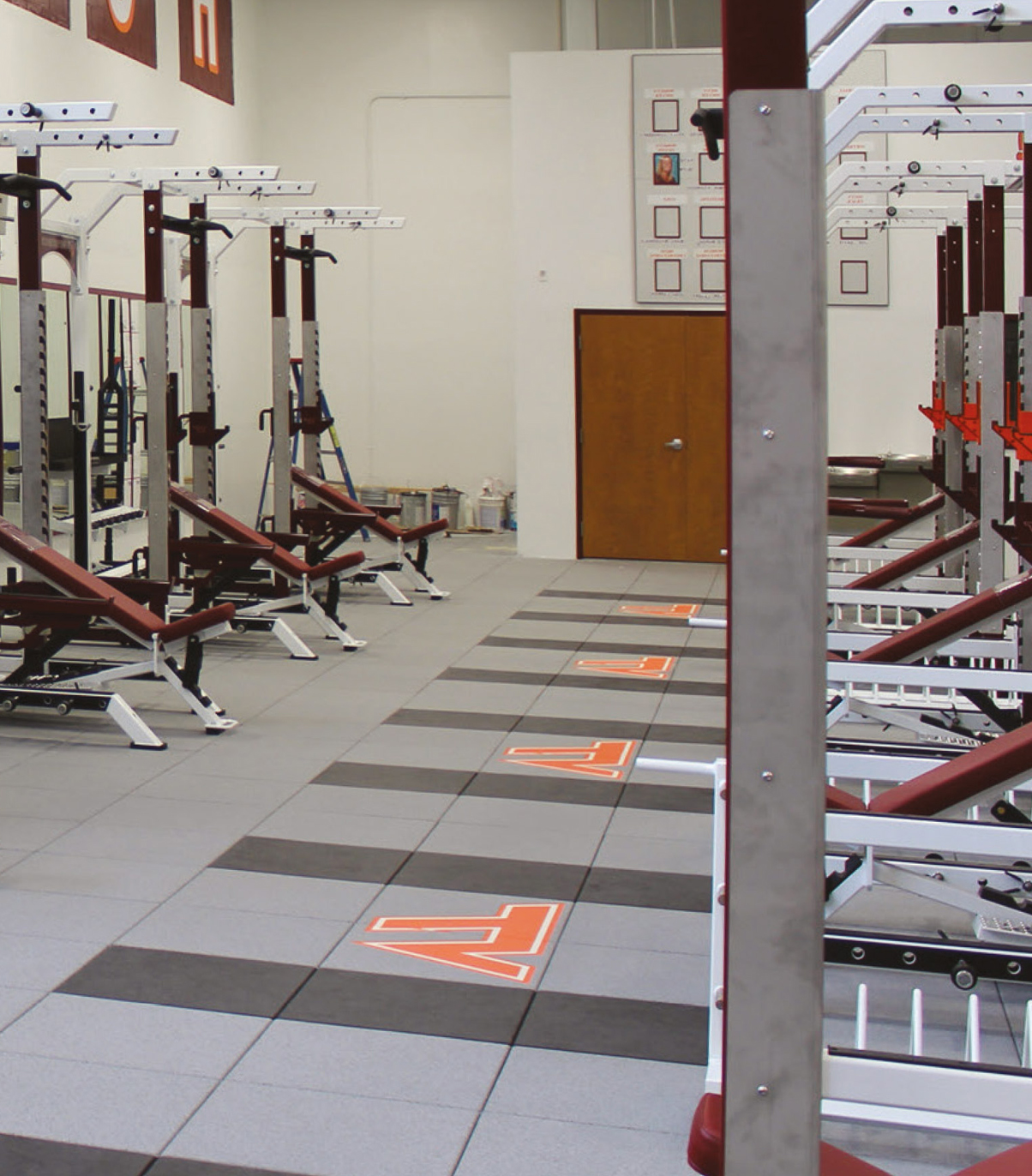

It has to be Salford City Academy, UK. The green aspect was a major factor in the brief we were given from the outset. The facility not only has our recycled flooring solution but also our range of self-powered cardio equipment. Not a single piece of gym equipment requires external power. Adding to the sustainability of this site, most of the equipment is made from steel that can in turn be recycled.
Our environment policy to guide us towards becoming more eco-friendly in all our business activities. Our Environmental Action Plan breaks our Environment policy down into manageable tasks with a deadline against each as we work towards achieving net zero by 2030. We’re currently rolling out Hybrid Electric vehicles across our fleet and have completed various tasks including replacing all the lighting in our buildings with LEDs.
Drilling down into the supply chain, many of our manufacturers have been encouraged to move to cardboard packaging and away from polystyrene and at Gym Gear HQ, we’ve purchased a large cardboard compactor that takes our waste cardboard packaging and compresses it into bails that are collected by Smurfit for recycling.
We also have a polystyrene compactor, which breaks up polystyrene and compresses it into solid bricks that can then be recycled.
As an SME we are proud of what we’ve achieved to date and we continue to make progress year on year.
Our eco-friendly rubber gym flooring not only provides a durable and resilient surface for gym spaces, but also contributes to the broader goal of minimising environmental impact.
Our rubber gym floor tiles are made from 100 per cent recycled vehicle tyres, with only tiny EPDM colour granules on the surface of the colour fleck tiles being a non-recycled raw material.
Our most sustainable flooring product would have to be the plain black Premium Rubber tiles because they’re made from 100 per cent recycled raw materials.
